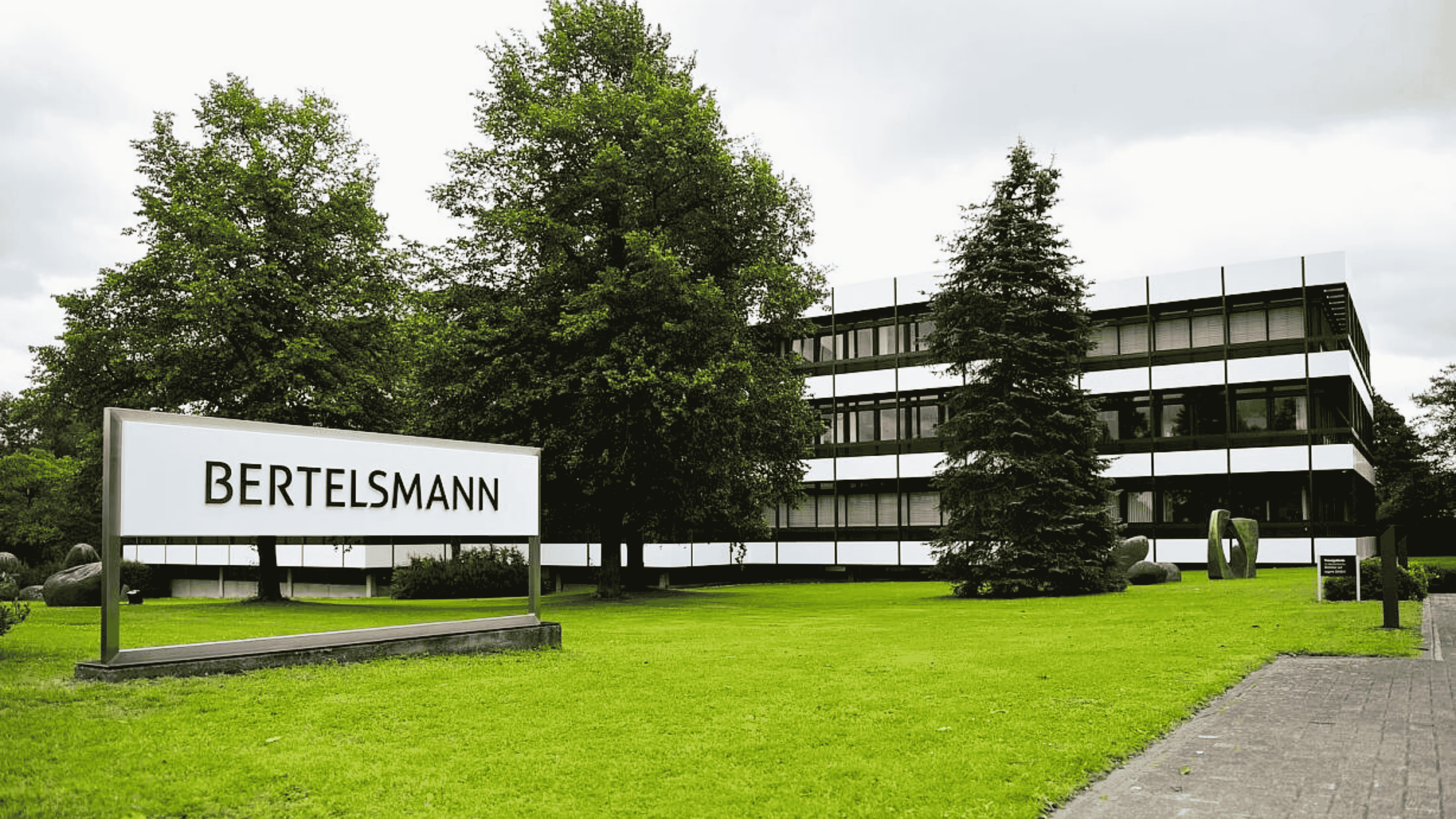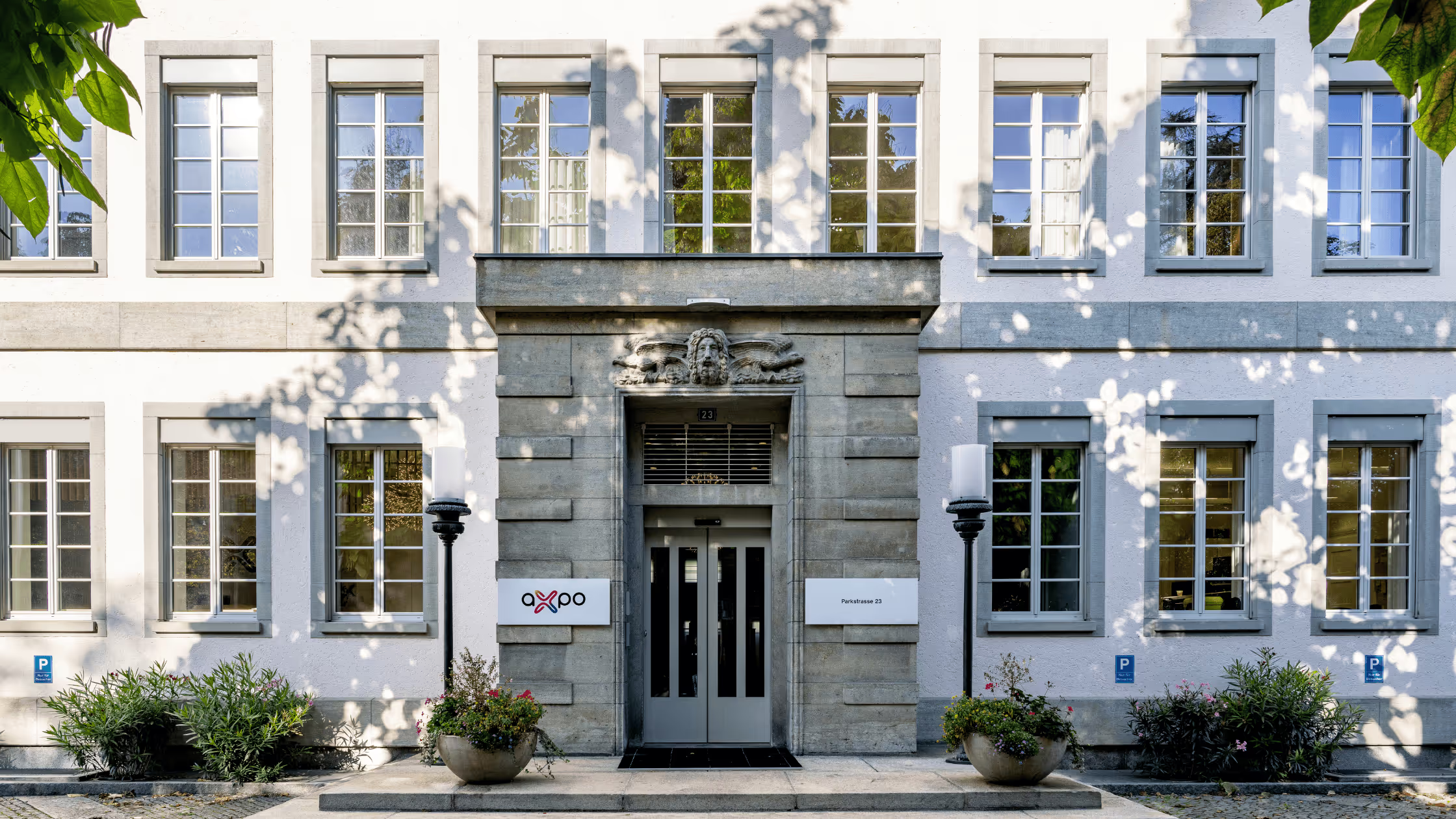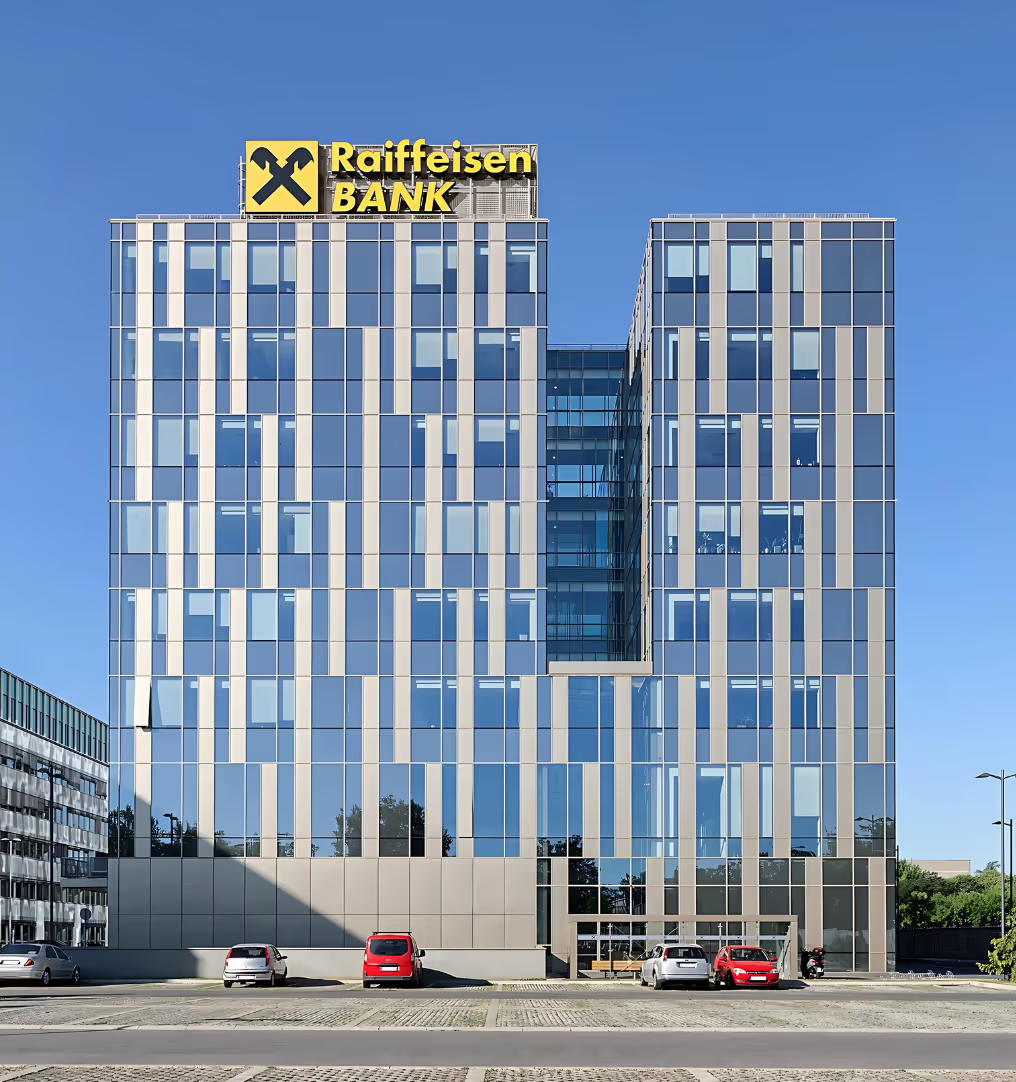Wie Bertelsmann die Beschaffung in 7 Divisionen vereinheitlichte, um den Einkauf strategisch zu gestalten

Auf einen Blick
Hauptsitz
Industrie
Andere Technologien
Über Bertelsmann
Bertelsmann ist ein diversifizierter internationaler Konzern mit über 74.000 Mitarbeitern in mehr als 50 Ländern. Das Unternehmen mit Hauptsitz in Gütersloh, Deutschland, ist in sieben eigenständigen Geschäftsbereichen tätig: RTL Group (Rundfunk und Unterhaltung), Penguin Random House (Verlagswesen), BMG (Musik), Arvato (Dienstleistungen), Bertelsmann Printing Group, Bertelsmann Education Group und Bertelsmann Investments.
Diese einzigartige Struktur ermöglicht es jeder Abteilung, unabhängig zu agieren und fördert Unternehmertum, Innovation und Agilität in sehr unterschiedlichen Branchen wie Medien, Bildung und Dienstleistungen. Die Gruppe lässt sich von langfristigen Werten wie Kreativität und Unternehmertum leiten und setzt sich stark für digitale Transformation und Nachhaltigkeit ein. Ihr breites Portfolio in Kombination mit einem stark dezentralisierten Organisationsmodell macht sie zu einem der größten und vielfältigsten Medien- und Dienstleistungsunternehmen Europas und der Welt.
.png)
„Unser Ziel ist es, Mehrwert zu bieten, damit sich Unternehmen auf ihre Ziele konzentrieren können... Mit akiro wird die Beschaffung zu einem Geschäftspartner und ermöglicht unserer Gruppe, erfolgreich zu sein.“
— Dirk Kunz, Leiter des Bereichs Group IT Sourcing — Senior VP
Die Herausforderung
Das dezentrale Modell von Bertelsmann ist seit langem die Grundlage für seinen Erfolg. Jeder Geschäftsbereich ist in der Lage, unabhängig und in der Nähe seiner Kunden, Märkte und Branchen zu handeln. Diese unternehmerische Freiheit hat der Gruppe geholfen, in den Bereichen Bücher, Musik, Fernsehen, Bildung und Investitionen erfolgreich zu sein. Bei der Beschaffung ging die Autonomie jedoch auf Kosten von Abstimmung, Transparenz und Effizienz.
Als 2014 die zentrale IT-Beschaffungsabteilung eingerichtet wurde, war der Stand der Beschaffung einfach. Die Prozesse basierten fast ausschließlich auf Excel-Tabellen, PowerPoint-Präsentationen und E-Mail-Ketten. Die Strategien waren auf SharePoints, lokale Ordner oder einzelne Laptops verteilt. Jede Abteilung hatte ihre eigene Arbeitsweise, ihre eigenen Vorlagen und ihre eigenen Prioritäten.
Anfänglich führte die Bündelung von Verträgen zu schnellen Gewinnen. Doch die Abhängigkeit von manuellen Werkzeugen zeigte bald gravierende Mängel. Das Management konnte weder Strategien noch Fortschritte erkennen. Die Stakeholder aller Abteilungen konnten nicht effektiv zusammenarbeiten, was zu Doppelarbeit und Silos führte. Die Beschaffung wurde zu einem reaktiven Modus gezwungen, der sich eher auf Transaktionen als auf langfristige Strategien konzentrierte.
„Zunächst haben wir einfache Früchte geerntet, indem wir Verträge gebündelt haben. Aber wir haben mit E-Mail und Excel gearbeitet, was zu einem Mangel an Transparenz führte. Das Herumschicken von Excel-Dateien war weder effektiv noch professionell.“
— Dirk Kunz, Leiter des Bereichs Group IT Sourcing — Senior VP
Die Schwächen wurden in der IT- und Softwarebeschaffung am deutlichsten sichtbar. Angesichts der jährlichen Ausgaben von mehr als 250 Millionen Euro und strategischen Anbietern wie SAP und Microsoft erforderte diese Kategorie solide, professionelle Strategien. Doch die Beschaffungsstrategien wurden in inkonsistenten Formaten, mit unterschiedlicher Qualität und mit wenig Möglichkeiten zur bereichsübergreifenden Ausrichtung entwickelt. Das Ergebnis waren Ineffizienz, eine schwächere Hebelwirkung bei den Lieferanten und eine eingeschränkte Fähigkeit, proaktiv zu planen.
Abgesehen von den betrieblichen Ineffizienzen stiegen auch die strategischen Erwartungen an die Beschaffung. Bertelsmann hatte sich verpflichtet, bis 2030 klimaneutral zu werden, weshalb es für die Beschaffung unerlässlich war, Nachhaltigkeit in die Kategoriestrategien zu integrieren. Die Interessengruppen erwarteten zunehmend, dass die Beschaffung Risiken antizipiert, Lieferantenpartnerschaften gestaltet und einen langfristigen Geschäftswert bietet. Angesichts fragmentierter Tools und isolierter Prozesse war die Beschaffung jedoch nicht in der Lage, sich dieser Herausforderung zu stellen.
„Wir haben Strategien in Powerpoint und Excel mit Meilensteinen entwickelt, aber das war nicht professionell genug. Angesichts der Ausgaben von 250 Mio. € in IT und der Zusammenarbeit mit SAP, Microsoft und anderen strategischen Lieferanten brauchten wir Transparenz und Professionalität, um ein wertvoller Kunde zu sein. Deshalb brauchten wir etwas, das über Excel hinausgeht — und wir haben Akiro gefunden.“
— Dirk Kunz, Leiter des Bereichs Group IT Sourcing — Senior VP
Die Lösung
Bertelsmann ging eine Partnerschaft mit akiro ein, um seinen Prozess der Einkaufsstrategie zu professionalisieren, zu vereinheitlichen und zukunftssicher zu machen. Bei der Wahl ging es nicht um die Zentralisierung der Steuerung, sondern um die Einführung eines gemeinsamen Rahmens, der für Struktur, Transparenz und Zusammenarbeit sorgte — und gleichzeitig die Flexibilität für die Bedürfnisse der Geschäftsbereiche wahrte.
Die Reise begann mit einem interaktiven Onboarding-Prozess. Als einer der ersten Kunden von akiro spielte Bertelsmann eine aktive Rolle bei der Gestaltung der Plattform. Alle paar Tage fanden Workshops statt, um Anwendungsfälle zu brainstormen, anzupassen und gemeinsam zu entwickeln. Die regelmäßigen Check-Ins alle drei Wochen konzentrierten sich auf neue Versionen, Schulungen und Integrationen. Der Prozess stellte die Akzeptanz und kontinuierliche Verbesserung sicher.
Die Plattform selbst führte mehrere wichtige Funktionen ein, die die Beschaffung grundlegend veränderten. Strukturierte und dennoch flexible Workflows standardisierten die Art und Weise, wie Strategien in der gesamten Gruppe entwickelt wurden. Zum ersten Mal verwendeten die Beschaffungsteams einheitliche, akademisch fundierte Methoden wie die Kraljic Matrix und Porters Five Forces. Der Arbeitsablauf war jedoch nicht starr — irrelevante Schritte konnten übersprungen werden, sodass die Teams den Prozess an die Komplexität der einzelnen Kategorien anpassen konnten. Dieses Gleichgewicht zwischen Struktur und Flexibilität war ausschlaggebend für die Einführung.
Eine einzige Quelle der Wahrheit ersetzte die Fragmentierung der Vergangenheit. Wo Strategien früher auf Dateien und SharePoints verteilt waren, bot akiro ein zentrales Repository, auf das Mandanten, Rollen und Abteilungen zugegriffen werden konnte. Über 150 Stakeholder konnten direkt auf der Plattform auf Strategien zugreifen, sie kommentieren und gemeinsam an ihnen arbeiten. Zum ersten Mal war die Beschaffung konzernweit vollständig transparent und transparent.
„Mit akiro haben wir einen standardisierten Prozess zur Erstellung von Strategien. Davor hat jeder auf seine Weise Strategien entwickelt — immer noch professionell, aber nicht standardisiert. Jetzt folgen alle dem gleichen Prozess... Das gibt uns einen einzigen Punkt der Wahrheit.“
— Leon von Rüden, Strategischer IT-Einkäufer
Die kollaborative Transparenz wurde durch die Erfassung der Interessengruppen ermöglicht. Die Beschaffung konnte nun die Beiträge von über 150 Stakeholdern aus acht Abteilungen auf strukturierte und sichtbare Weise erfassen und aufeinander abstimmen. Die Zusammenarbeit, für die früher wochenlange E-Mails erforderlich waren, wurde zu einem optimierten Prozess in Echtzeit.
Neben Struktur und Zusammenarbeit führte Akiro Intelligenz und Weitsicht ein. Mithilfe der Szenariomodellierung konnte das Beschaffungswesen für verschiedene Zukünfte — von Marktvolatilität bis hin zu geopolitischen Krisen — vorausplanen. Marktinformationsfunktionen lieferten Echtzeitdaten für fundierte Entscheidungen, während AI Assist das Brainstorming in einer sicheren, beschaffungsspezifischen Umgebung unterstützte. Entscheidend ist, dass Nachhaltigkeitsziele wie die Klimaneutralität bis 2030 nun direkt in die Beschaffungsstrategien integriert werden könnten.
„Die Szenariomodellierung ist weit fortgeschritten und bringt die Beschaffung auf die nächste Stufe. Wir können verschiedene Szenarien modellieren, die eintreten könnten — sogar aktuelle geopolitische Krisen —, was uns hilft, uns vorzubereiten und mehr Wert zu gewinnen.“
— Leon von Rüden, Strategischer IT-Einkäufer
Zusammen ermöglichten es diese Fähigkeiten Bertelsmann, von einer taktischen, fragmentierten Beschaffung zu einem einheitlichen, professionellen und zukunftsorientierten Ansatz überzugehen — einen Ansatz, der seine dezentrale Kultur respektierte und gleichzeitig Ausrichtung und strategischen Wert bot.
Das Ergebnis
Die Einführung von Akiro hat den Einkauf bei Bertelsmann von Grund auf neu gestaltet. Was einst eine fragmentierte, taktische Funktion war, die von Tabellenkalkulationen und E-Mails angetrieben wurde, ist heute eine einheitliche, professionelle und zukunftsorientierte Funktion. Prozesse sind schneller, Strategien sind tiefgreifender und Zusammenarbeit ist eher zur Norm als zur Ausnahme geworden.
Beschaffungszyklen, die sich früher über wochenlanges Hin und Her erstreckten, werden heute in geführten, transparenten Arbeitsabläufen abgewickelt, die die Beteiligten von Anfang an zusammenbringen. Statt inkonsistenter PowerPoints und isolierter Excel-Tabellen werden Strategien mit Strenge, Klarheit und akademischen Rahmenbedingungen entwickelt. So werden Ergebnisse erzielt, denen auf allen Ebenen des Unternehmens vertraut wird.
„Die Akiro-Plattform ermöglicht eine schnellere und detailliertere Strategieerstellung. Es enthält Richtlinien und Fragen, die Sie dazu bringen, eingehender über Ihre Marktsituation und Ihre Strategie nachzudenken. Dies professionalisiert den Prozess und verbessert die Qualität der Strategien.“
— Leon von Rüden, Strategischer IT-Einkäufer
Genauso wichtig wie Geschwindigkeit und Qualität ist der kulturelle Wandel. Die Beschaffung wird nicht länger als Blocker angesehen. Durch die Erfassung der Interessengruppen und den transparenten Zugang können mehr als 150 Stakeholder aus acht Abteilungen direkt auf der Plattform zusammenarbeiten und so zu Strategien beitragen und diese aufeinander abstimmen. Bei dieser Funktion geht es nicht mehr darum, Genehmigungen einzuholen oder Akten zu klären — es geht darum, gemeinsam mit dem Unternehmen Wert zu schaffen.
Die Denkweise hat sich von taktischen Kostensenkungen hin zu strategischer Wertschöpfung verlagert. Bertelsmann hat sogar aufgehört, Einsparungen als wichtigen KPI zu melden, weil das Management darauf vertraut, dass robuste Strategien sie auf natürliche Weise liefern. Stattdessen wird die Beschaffung an ihrer Fähigkeit gemessen, Widerstandsfähigkeit aufzubauen, Innovationen zu fördern, Lieferantenpartnerschaften zu stärken und Nachhaltigkeit — einschließlich des Klimaneutralitätsziels des Konzerns für 2030 — in Beschaffungsentscheidungen zu integrieren.
„Wir haben aufgehört, Einsparungen an das Management zu melden, weil es weiß, dass die Einsparungen automatisch aus den besten Strategien resultieren. Die Beschaffung ist heute als echter Geschäftspartner anerkannt: professionell, vertrauenswürdig und zukunftsorientiert.“
— Dirk Kunz, Leiter des Bereichs Group IT Sourcing — Senior VP
Für Bertelsmann geht es bei dieser Transformation nicht nur um betriebliche Effizienz, sondern auch darum, die Rolle der Beschaffung im Unternehmen neu zu definieren. Mit Akiro als Grundlage arbeitet die Beschaffung heute auf höchstem Niveau an Professionalität und Zusammenarbeit, sodass sich die Gruppe auf ihre Kernaufgabe konzentrieren kann: Kreativität, Weiterbildung und Innovation weltweit.
Sind Sie bereit, Ihre Beschaffungsstrategie zu transformieren?
Es gibt einen besseren Weg, die Beschaffung zu erledigen. Das ist IT.
.avif)

